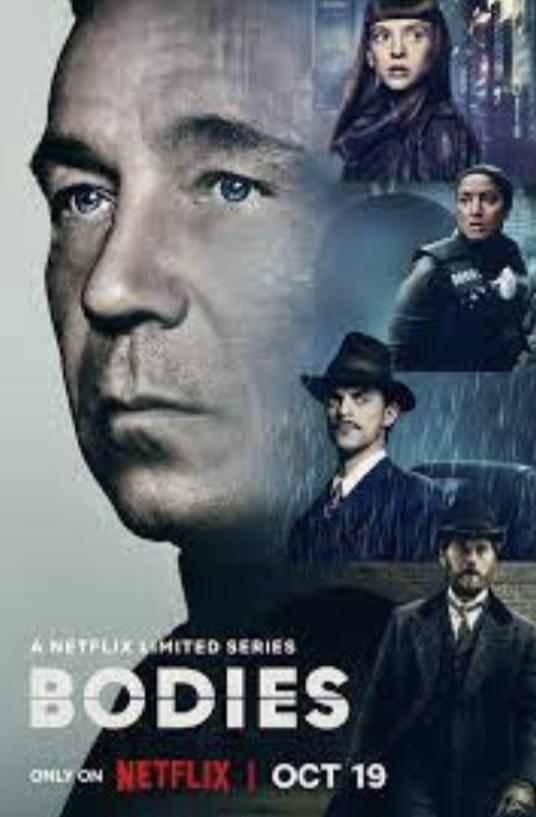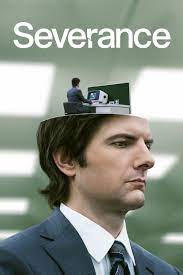Netflix has produced yet another series about the infamous cannibal serial killer, Jeffery Dahmer. The series follows Dahmer through his high school years into adulthood and elaborates on his past traumas. The show stars Evan Peters (who rose to fame after multiple seasons of American Horror Story) as Dahmer, and takes place in Milwaukee, Wisconsin. The first season consists of 10 episodes. The show goes in no particular order of years, with almost every episode including events from multiple years. This can make it confusing for viewers to keep up with.
Episode One begins in 1991, depicting Dahmer’s neighbor Glenda Cleveland getting up from watching television after hearing the sound of what appears to be an electric knife. At this point in the show, Dahmer is (or is close to) 31 years old. He was then shown traveling to a local bar and luring a man named Tracy home. Things take a dark turn when the victim Tracy attempts to outsmart the killer and eventually escapes. Tracy runs until he stumbles upon a police car, eventually leading to Dahmer’s arrest. This would be the last of Dahmer’s murders before he was sent to prison.
Episode Two reveals parts of Dahmer’s dark past. Dahmer’s parents constantly argue, and his father Lionel Dahmer, teaches him, a child, how to take out the intestines of roadkill. This moment fixates on Jeffrey’s newly discovered fascination with hearts. The episode then jumps to Dahmer in his young adult life. Dahmer is living alone, but convinces his father to let him return home, but is instead sent to live with his grandmother. Later in the episode, Dahmer walks to a liquor store where he runs into a group of teens looking to buy alcohol. Dahmer agrees to buy it for the kids and invites one of the boys home, who reveals himself to be 14 years old. The teenager, named Konerak Sinthasomphone, is drugged by Dahmer and makes his way out of the home after he regains consciousness. He appears to be bleeding from the head, where Dahmer had drilled a hole and poured hydrochloric acid. Konerak is found by neighbors, as well as police, but is taken back to Dahmer’s care (and eventually killed) after Dahmer claims that the boy was 19 and that they were dating. This episode was especially upsetting because this boy was a child and the police deemed him okay to return to Dahmer’s care without any further inspection. If they had investigated more, they most likely would have seen the hole drilled into the boy’s head. I find it particularly strange that the two cops didn’t really question Dahmer more as to why the boy couldn’t speak or walk after he had claimed that the boy was “drunk.”
In Episode Three, we see Dahmer in high school at the age of 17 in 1977. Dahmer is assigned to dissect a pig, and here we can see another instance of Dahmer’s fascination with hearts. Meanwhile, Dahmer’s parents are depicted in a divorce and custody battle over their youngest child, David. Dahmer’s mom, Joyce Flint, takes David and flees the home. Dahmer spends countless nights alone in the house, as his father is also gone, presumably with his new girlfriend Shari. Eventually he brings home a hitchhiker, who is implied to be Dahmer’s first murder victim.
Episode Four opens with Dahmer in 1991 in a room with police, being interrogated about the murders. Detectives investigate Dahmer’s yard in search of human remains. The episode then cuts back to him in high school revealing to his father that he has been alone in the house for three months. Lionel and his new girlfriend Shari take Dahmer out for a meal where he tries to tell his father about his dark fantasies and thoughts. Lionel just brushes off the comments, however, and continues to talk about Dahmer’s future studying science at Ohio State University. I believe that if Dahmer had gotten the chance to tell his father about his fantasies, he would have been able to get at least a little bit of professional help. Dahmer goes off to college, but soon flunks out with a 0.45 GPA. His father berates him and tells him that he has to join the army. In 1981 at the age of 21, Dahmer and his father are depicted in a car, with Lionel being furious with Dahmer. It is revealed that Dahmer had been kicked out of the army, for reasons that are assumed to be alcohol induced, and was forced to move back home, to help his grandmother. Later in the episode, the audience is shown that Dahmer had been picking up men from bars and taking them to “bathhouses” (places where homosexual men went to have sexual relations). In these bathhouses, Dahmer would drug men and just leave them there, which leads to him eventually being caught and blacklisted from other bathhouses nearby. This part confused me a bit, because why did the owner and police not arrest him for drugging people? Dahmer later heads to a local bar and lures a man into a hotel room, where he accidentally drugs himself along with the victim. The scene cuts to the morning after and the camera pans up the victim’s body which is almost completely nude apart from his undergarments. The victim’s skin is bruised and has blood splattered on his face. Dahmer examines the body, trying to recall the events of the night before.
Episode Five begins with Dahmer in 1987. He is reading the newspaper about an 18 year old who had just died. The scene then cuts to Dahmer in 1991, back in the interrogation room, where he reveals that he had planned to dig the boy up. Dahmer tells the police that drinking made him feel more alone, so he’d go to bars and pick people up, bring them home, and then drug them to later be strangled “so they didn’t have to suffer.” Dahmer states that when he stopped killing for a few months, he got scared and thought every siren he heard was the police coming for him. Later in the episode, Dahmer tells the officers that he “messed up” one night, when he invited a man back to his home. Dahmer drugged the man, but his grandmother came downstairs and saw the victim lying unconscious. Concerned, she vowed to stay with him until he woke up. The next day, Dahmer and his grandmother dropped the man off at a bus stop, and he later woke up in the hospital. The victim went to the police, who didn’t believe him because “there’s no evidence.” The victim made a good point about the police officer not believing a black man with no criminal record, while Dahmer on the other hand had been arrested multiple times and no investigation ever took place. The man later saw Dahmer trying to bring another man home and warned him not to go with Dahmer. In previous episodes, one of his victims mentions his brother who Dahmer had also tried to bring home. Dahmer is depicted trying to lure the brother back into his home, after he drugged him. The 13 year old victim stumbles his way back home, where his father calls the ambulance and Dahmer is later arrested for second degree sexual assault. Dahmer pleaded no contest and was given one year in the custody of the Milwaukee County House of Corrections. The judge states that Dahmer reminded him of his grandson who had a drinking problem, but turned his life around and grants to not state the nature of Dahmer’s misconduct. Personally, I think that the judge should not have let Dahmer get off so easily and definitely should not have hidden the nature of the misconduct from Dahmer’s files.
Episode Six cuts in and out of sound as the victim featured, Tony, is deaf. The first 18 minutes of the episode follow Tony and his family, giving us a glimpse of how close they were and how much everyone loved him. One night, Dahmer spots Tony in a club where they communicate through paper and pen. Tony and Dahmer later meet up again to hang out. Throughout the episode, Dahmer struggles numerous times trying to kill Tony. We see multiple glimpses of Dahmer reaching into his pocket to pull out a small bag of powder, which he used to drug his victims. Dahmer then stares at the bag before deciding to put it back into his pocket. Many believe that this was due to the fact that Dahmer had developed “feelings” for Tony and was fighting his urge to kill him. After hanging out, Tony returns to Dahmer’s apartment to retrieve keys he had forgotten and Dahmer takes this opportunity to kill him. Although many people believed that Dahmer had liked Tony, I think that he would have ended up killing Tony anyway, regardless of if he had feelings for him.
Episode Seven, titled “Cassandra” (after Glenda Cleveland’s daughter), focuses more on the racial aspect of the series. We mostly follow Glenda Cleveland, who was very vocal with the police about smells and noises that had been coming from Dahmer’s apartment, but was ignored time and time again. We see a short clip of the mayor and chief of the police department talking about suspending the two police officers who brought Dahmer’s teenage victim back to Dahmer after multiple witnesses had spoken up about how the boy didn’t look or sound well. Reverend Jesse Jackson, a civil rights activists for black and brown men, speaks to chief of the police department about his stations lack of incompetence and blatant racism when it came to black people speaking up but being ignored.
In Episode Eight, Lionel and Dahmer have a chat where Jeffrey reveals that he thinks the taxidermy his father showed him as a kid was the source of his fantasies. Later in the episode, Lionel tells his wife that he thinks he had fantasies like Dahmer and expresses how guilty he feels for possibly giving those genes to him. Lionel and Jeffrey’s lawyer want Jeffrey to plead insanity. In court, Dahmer is declared of sound mind during the time of the murders. Dahmer is then sentenced to 15 consecutive life terms.
In Episode Nine, it is revealed that the two cops who were on duty the night Konerak Sinthasomphone died had been calling his family, spouting racist comments through the phone, suggesting that they should “get on a big [f******] plane and go back to the [f******] jungle,” while also making comments on their eyes, calling them “slanty.” This especially surprised me because I thought that Lionel was upset with the families for trying to sue him and that he was the one calling the Sinthasomphones. It then goes onto show that Damher’s apartment where the murders had taken place was bought by the city and demolished, where it is assumed that a park memorial will be built in honor of the victims. In a short scene at the end of the episode, the audience is shown a group of inmates sitting in chairs singing in unison, like they would do in a church, and Jeffrey Dahmer was stabbed in the neck by another inmate who screamed that Dahmer didn’t deserve to be there.
Episode 10 touches on serial killer John Wayne Gacy, and partially follows his path with religion. Dahmer sees an interview with Gacy on television and decides to talk to a priest in jail. The priest tells Dahmer that even if someone believes they don’t deserve forgiveness, they will get it anyway, and that all someone has to do to receive forgiveness is to believe in Jesus. Dahmer gets baptized after this chat. At the end of the episode, Dahmer is beaten to death with a metal bar by another inmate named Christopher Scarver, who says that his God is a god of vengeance and that God has sent him to punish Dahmer for what he did.
This series has sparked many controversies on the internet, with some saying that the show glorified Dahmer and his crimes. A user on Twitter by the name of “ericthulhu” claims to be apart of the family of one of Dahmer’s victims. The user expresses how his family is upset that the show was made because it’s “re-traumatizing” and unnecessary. A big issue I had with the show is that it was very hard to follow as the years jumped around a lot. While the show did have many heavy-handed aspects to it, it also shed light on the racial issues that were present during that time, and continue in today’s world. The show also gave focus to the victims and their families. This series is about more than just Dahmer. It’s also about the victims, and the perspective of their families, as well as the justice system, which continuously let Dahmer get away with these crimes due to racism and homophobia.




































